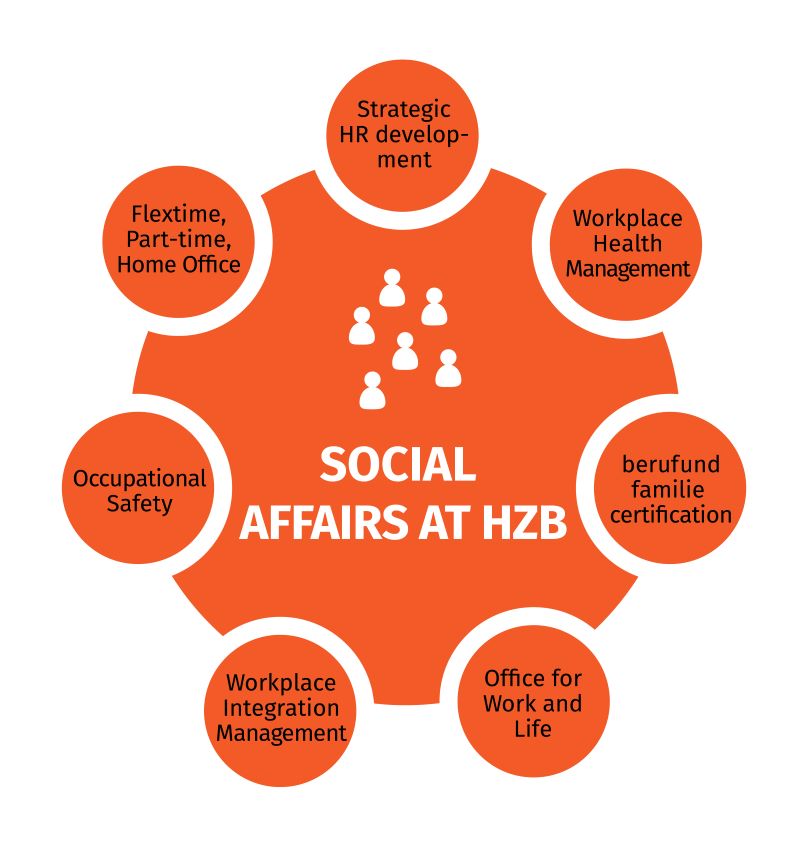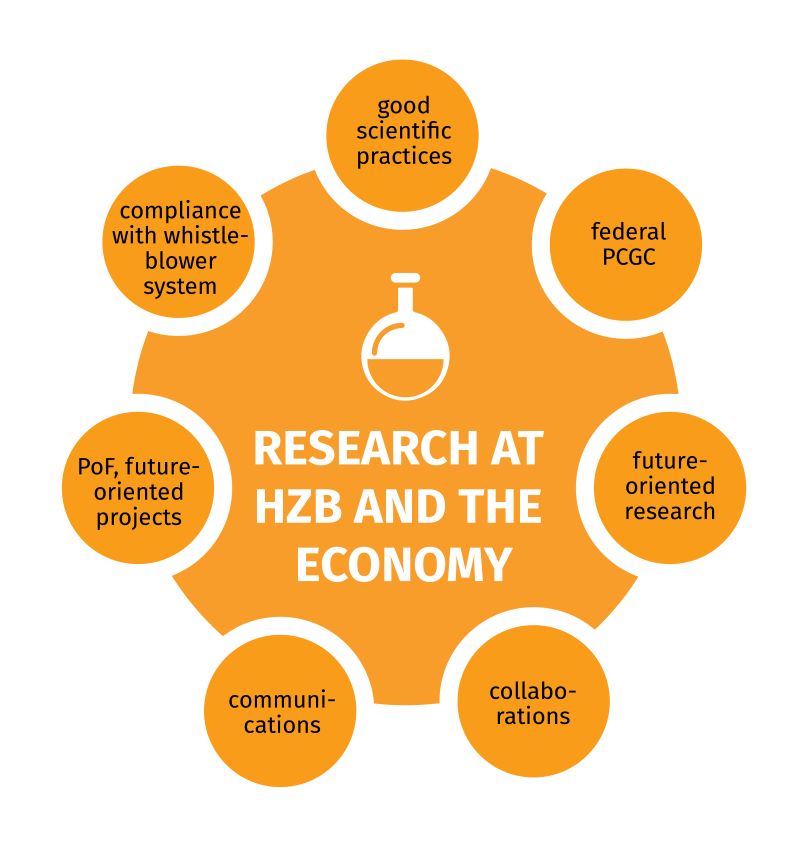Sustainability at HZB
We are committed to our social and ecological responsibility in our research and in our daily work. We take responsibility, especially for our greenhouse gas emissions.
In its mission and Code of Conduct, HZB is committed to sustainable research and the protection of natural resources. We understand sustainability as an ongoing process. We take equal account of ecological, economic and social aspects that together enable the sustainable development (according to the LeNa guidelines).

Greenhouse gas neutrality and greenhouse gas balance
HZB has set itself the goal of becoming greenhouse gas neutral by 2035. To this end, HZB has had its greenhouse gas emissions certified according to the internationally recognised standard ‘Green House Gas Protocol’ (basis: 2021).
The externally audited greenhouse gas balance of the HZB has identified the main sources of emissions. The report lays the foundation for significantly reducing these emissions in the coming years.
The HZB has already taken important steps. An overview of some of the measures can be found below. At the same time, we are developing a medium- to long-term renovation concept for the sites.

Examples for the topic of ecology at HZB
Driving forces: the Environment Team and the Environment Workgroup
Many employees are committed to the effort against climate change. At the end of 2018, about 20 employees joined together to form an environmental team that meets every three months. It discusses proposals for improving the environmental performance of the HZB. These proposals are taken up by the environmental working group, reviewed and presented to the management.
HZB uses 100% green electricity
Because it operates large-scale technical facilities and laboratories, HZB consumes a large amount of electricity. Since the beginning of 2020, HZB has been powered exclusively from renewable sources. Through this conversion, approx. 17,400 tons of CO2 can be reduced annually (related to the year 2018). While that is good in itself, HZB is also looking for ways to lower its energy requirements. This is a priority topic, for example, in developing the concept for the successor synchrotron source BESSY III.
Goal: up to 75% fewer business flights
Air trips are especially harmful for the environment, and have an enormous impact on the CO2 balance of HZB. Upon the suggestion of the Environment Team, the HZB Management has therefore set an ambitious goal: “In the post-COVID-19 times, HZB will continue to pursue the strategic goal of keeping the number of business miles low and even bringing them down to below the average for 2015–2019, by at least 25% for European and intercontinental flights, and by at least 75% for domestic flights per year.”
Ecological design of the HZB campuses
HZB plans to combat the decline of insect populations and to make a positive contribution towards biodiversity by transforming Adlershof and Wannsee into natural, ecological campuses. Since 2019, for example, sheep have been grazing the large meadows in Wannsee, greatly reducing the need for mowing. Leaf vacs are forbidden as a rule, and leaf blowers are only allowed on asphalt and concrete areas. HZB has commissioned a study for the nature-compatible redesign of its Adlershof campus. The employees were included in the voting process for the individual measures.
Sustainable construction
For the LE building in Wannsee, HZB was awarded the silver medal of the Bewertungssystem für nachhaltiges Bauen, BNB (assessment system for sustainable construction). This standard is also to be taken into account in further HZB building projects.
Sustainable mobility
- Charging stations for electric vehicles: In 2020, HZB installed charging columns at both of its locations. These are for the vehicles in HZB’s fleet as well as for employees’ private electric cars.
- Carpooling pinboard and support of public tranport tickets
- Certification as a bicycle-friendly employer: Since February 2024, HZB has been certified as a bicycle-friendly employer and thus actively promotes cycling among its employees.
Fair trade coffee
The canteen in Wannsee has been offering organic and Fairtrade coffee products since 2020, and the vending machines at the Adlershof site were also converted in 2024. A sustainability concept for the canteen will be implemented shortly.
Support for overarching initiatives
HZB is actively involved in the Arbeitskreis „Forum Nachhaltigkeit“ of the Helmholtz-Gemeinschaft and participates in events such as the Helmholtz Sustainability Summit. Furthermore, many scientists are privately engaged in the #ScientistsforFuture movement or taking an active role in science communication.
The two pillars alongside ecology are economics (which for us is research) and social affairs.

Examples for the topic of social affairs at HZB

Examples for the topic of economics/research at HZB
Promoting Diversity
At HZB, we value the diversity of our employees and promote a working culture based on appreciation, respect and openness. HZB has held the “Shaping Diversity” certificate since 2022 and has established various measures and processes to foster diversity, equal opportunities and inclusion.
